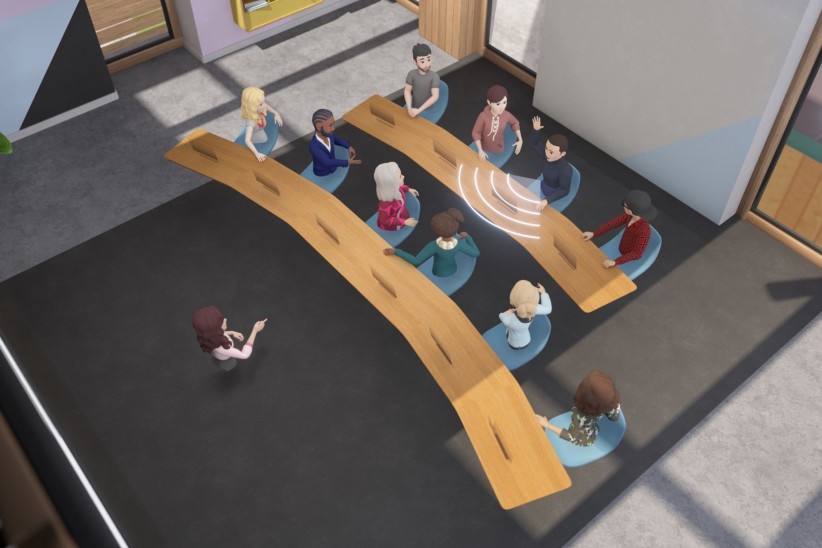Employees will need to learn to be flexible to adapt to an ever-changing and uncertain world of work. Our way of life and working has changed because of COVID-19, and these changes are likely to last. How do we take advantage of technology to train the workforce of tomorrow? How do we build and share different ways of working? Adecco’s International Future Leaders (IFL) development programme brings together young professionals from all over the world across the Adecco Group to become future leaders with a strong commercial sense, skills and passion to deliver solutions to real-time business challenges.
Retraining and upskilling employees are key to maintaining an organisation’s success, as well as to an employee’s career advancement. Top talent prefers to join organisations that support their development and, in times of talent scarcity, and labour shortages, companies want to pay particular attention to their employees’ and candidates’ priorities. According to a Gallup survey, millennials are more likely to stay with companies that prioritise employee training and growth.
Employees want to learn new skills
By upskilling, we mean teaching people adjacent skills. They can develop new skills and increase their competence in areas that pertain to their role or department. On the other hand, retraining or reskilling is about acquiring new skills that will allow an employee to perform a new job.
PwC commissioned a survey that polled workers in 19 countries to find out that 77% of them are 'ready to learn new skills or completely retrain’. Therefore, companies should leverage technology and capitalise on employees’ willingness to upskill to gain a competitive edge.
In this regard, the IFL programme aims to develop leaders who can solve real-time business challenges through training and innovation. It is intended to increase the Adecco Group's ability to retain and develop high potential, early career talent, as well as create a strategic pool of high-quality internal candidates to feed the leadership pipeline.
“IFL, this innovative 18-month development program, incorporated Agile Project Management, Product Ownership, Finance, Design Thinking and Organisational Change Management to name a few,” says Dylan George, an account and project manager from Sydney Australia who applied to join the IFL programme back in 2020.
“I looked into the program on the intranet and I was amazed by the opportunity it presented and everything I could gain from joining, but the application process was vigorous and intense having multiple rounds of interviews, psychometric testing and questionnaires,” George told the Adecco Group. “I managed to pass all of this and was selected as the only Australian candidate, among 27 other internal colleagues.”
Embracing lifelong learning to foster collaboration and innovation
Because of the new normal post-coronavirus and with the changing nature of work, individuals will need to continue to improve and update their skills. It is therefore critical for organisations to promote lifelong learning and offer training opportunities to their employees. “I’m a believer in lifelong learning,” said Dylan. “Gone are the days of studying only to be placed into a specific industry or skill set as we are in an ever-changing and technology-driven world.” he continued. “If we are to remain relevant in the new world of work, we need to maintain our thirst for knowledge.” He says that industry-specific skills are often transferable and can even complement one another, moving from Engineering to IT or vice versa. And in an era in which the future of work is heavily skewed towards virtual workplaces, remote working can create a sense of separation. Continuous learning is essential not only to the advancement of an employee's career, but also to foster collaboration and belonging in the workplace. “My personal experience with IFL was something more than a development program,” said George. “The connections you make, the stakeholders you meet and the projects you work on globally all cultivate you as a professional and lead to amazing opportunities such as the one I was offered,” he said. “IFL not only gave me the hard skills needed, I was also opened to a large network of colleagues and stakeholders from across the globe.”
Building superteams through AI and upskilling
A key contributor to uncertainty is the speed at which technological advances and economic change are making some skills obsolete while others are in high demand. However, modern technology and new online learning tools allow companies to provide their employees with plenty of opportunities to improve their skills and create super teams for business success. The 2021 Deloitte Global Human Capital Trends report shows that technological disruption has allowed leaders to take learning to the next level by creating superteams - groups of people and intelligent machines that work together to redesign work in a human-centered way. According to the report, using technology to design work to help people perform at their best is an emerging priority. Dylan George shared with Adecco Group that joining the IFL together with 27 other global delegates meant also that for 18 months he followed a host of skills development workshops on a variety of topics along with the opportunity to work in multicultural teams on real time business challenges under the direct supervision of directors allowing them the freedom to deploy the skills learnt and accrue feedback in real time. “Being a global company is great but being able to actually connect with those colleagues is even better,” George said. Collaboration across business units, dismantling silos, creating knowledge, learning while working, and individualising work environments is the future of work. The workforce will become more versatile, and the organisations more prepared to handle future challenges. According to Dylan George, IFL is a very demanding and challenging program but you get to determine what you put in and ultimately what the outcome is. “Be open to challenges, change and learning, reach out to your mentors and colleagues who support you,” George said.



